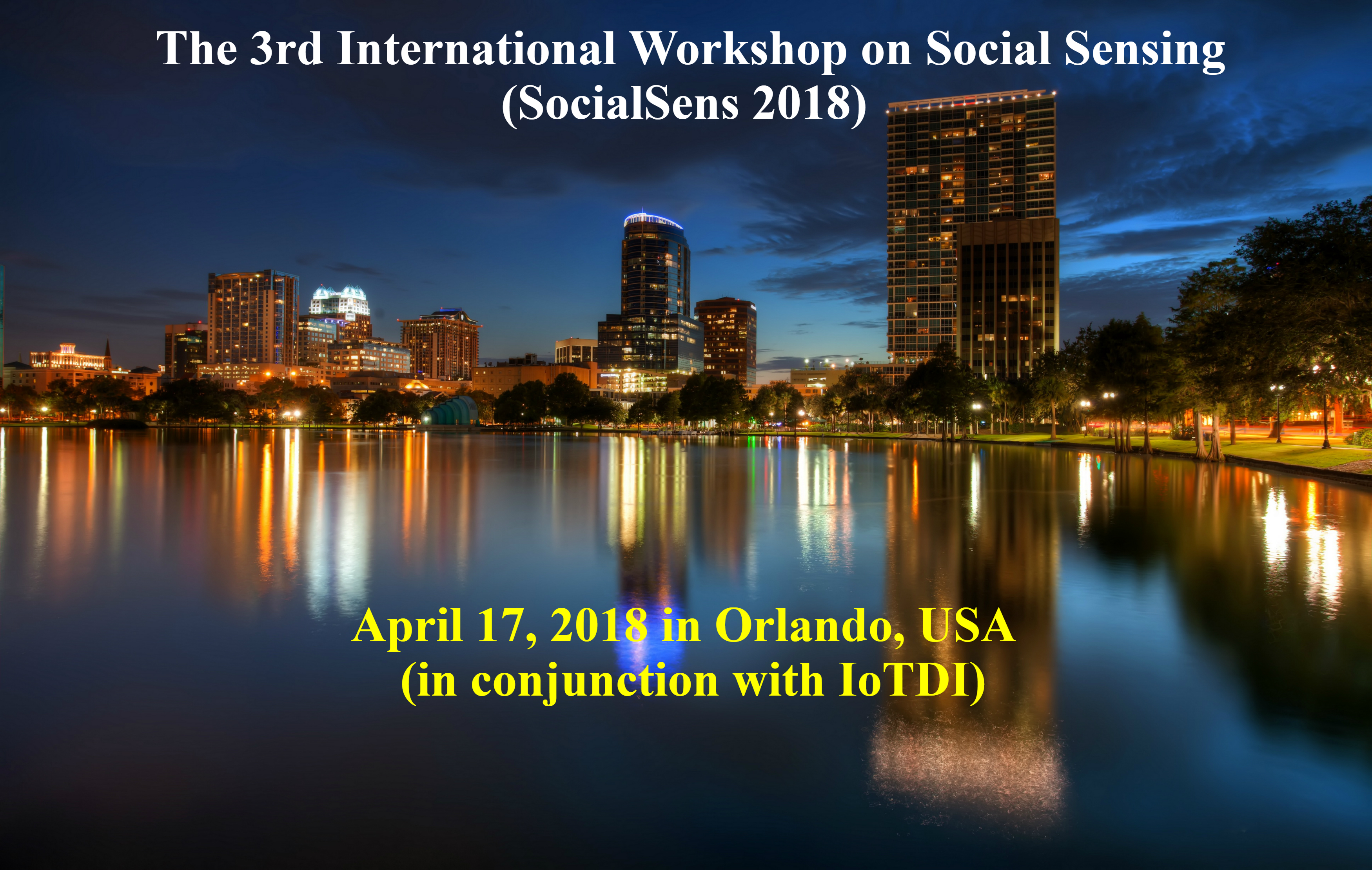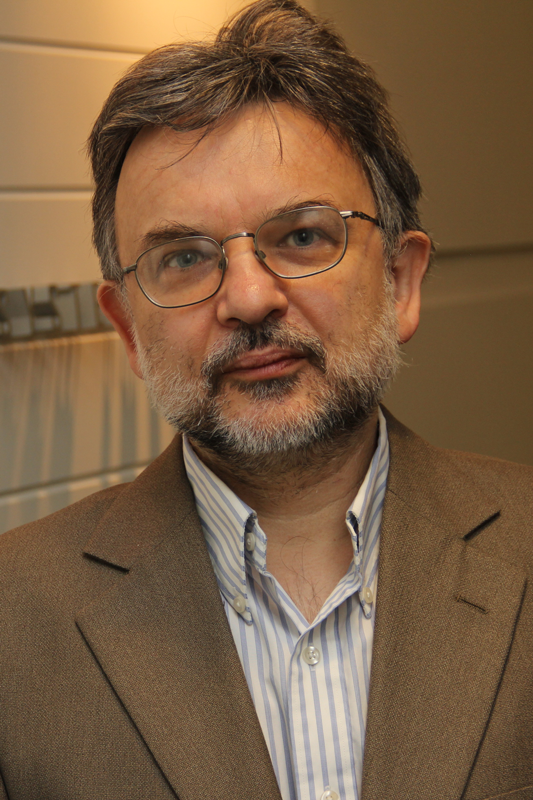SocialSens 2018 Is co-located with IoTDI 2018!
Social sensing has emerged as a new paradigm for collecting sensory measurements by means of "crowd-sourcing" sensory data collection tasks to a human population. Humans can act as sensor carriers (e.g., carrying GPS devices that share location data), sensor operators (e.g., taking pictures with smart phones), or as sensors themselves (e.g., sharing their observations on Twitter). The proliferation of sensors in the possession of the average individual, together with the popularity of social networks that allow massive information dissemination, heralds an era of social sensing that brings about new research challenges and opportunities in this emerging field.
The third international workshop on social sensing will bring together researchers and engineers from academia, industry, and government to present recent advances in both theoretical and experimental research. The scope of the workshop includes social sensing, ubiquitous, mobile and pervasive sensing, participatory and opportunistic sensing, urban sensing, social signal processing, information and coding theory, information processing and knowledge discovery from sensor data, data reliability, privacy and security issues, cyber-physical-systems with human-in-the-loop. We invite technical papers describing original ideas, exciting results, and/or real-world experiences involving the social sensing paradigm.

 Keynote speaker: Prof. Radu Marculescu (Carnegie Mellon University)
Keynote speaker: Prof. Radu Marculescu (Carnegie Mellon University)